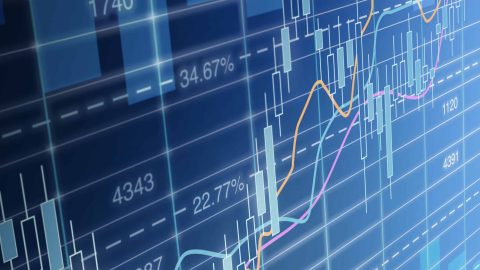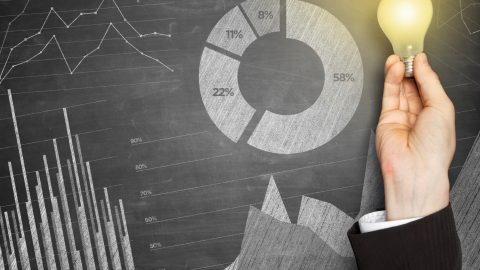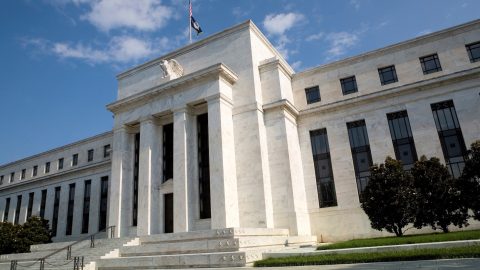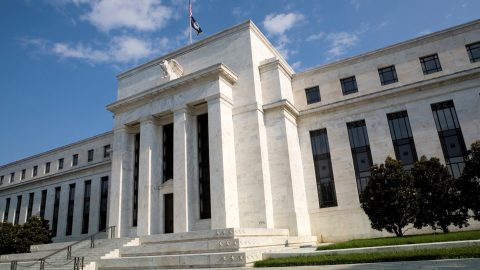All articles on the topic “Markets”
Markets assume President Trump will deliver
The outcome of the US election last week, together with the Brexit-vote in June, was the second major political event this year that shook financial markets. In both cases the outcome was different to what pollsters, the media and investors anticipated. Unsurprisingly, markets – across asset-classes and geographies – reacted strongly and in some cases […]
The impact of Donald Trump’s election victory
After a long campaign, the results of the US presidential election are in: Donald Trump will be the next President of the United States. In addition, the Republican Party has retained its majority in Congress. What are the repercussions for the global economy and the financial markets?
Clinton versus Trump
The rising relevance of the anti-establishment movement across many parts of the world has instilled a particular sense of urgency and importance into the upcoming presidential elections in the USA on 8 November.
“The trust in emerging markets is returning”
ESPA STOCK GLOBAL EMERGING MARKETS: Three questions for Gabriela Tinti, Senior Fund Manager
High uncertainty, low volatility
Uncertainty is high, while volatility is low. How to resolve the contradiction?
Postponed is not abandoned
Bond yields were up last Friday, whereas equities recorded losses. Signs that the bull market with low volatility, which started after the Brexit vote, is drawing to an end are becoming more plentiful.
Increasing volatility expected
In the weeks following the Brexit referendum, the prices of many asset classes were rising amid mild fluctuations. However, an increasing number of clues suggest higher fluctuation for the coming months.
Brazil: Hope for change stimulates bonds
Author: Felix Dornaus, Senior Fund Manager Emerging Markets Bonds Brazil tactically overweighted at the moment Most of the fundamental economic data are currently not good. In 2016, the country is in recession; for 2017, a minor growth rate of +0.7% is expected. The nominal budget deficit of 2016 is about -10%, with a primary deficit […]
Brazilian equities are in demand
Brazil is locked into a severe recession in 2016, the year of the Olympic Games in Rio de Janeiro. After negative growth of 2.5% last year, the economy will be shrinking by more than 3% in 2016. Political crises and corruption scandals in connection with the oil company Petrobras have badly affected the country. But […]

Brazil: Olympic Games of politico-economic indicators
In Brazil, or more specifically, in Rio de Janeiro, the 31st Summer Olympics will be held in August of 2016. After Mexico City (1968), Moscow (1980), Seoul (1988), and Beijing (2008), this is only the fifth outing in the city of an emerging economy. The holding of the Games reflects the increasing economic importance of […]

Brexit-Referendum – a Non-Event?
Was the decision by the UK to leave the EU a non-event? Globally speaking, share prices have increased, the spreads for default risk have narrowed on many markets, and the UK central bank, i.e. the Bank of England, did not cut its key-lending rate. Good growth rate The economic indicators continue to suggest real economic […]
The comeback of the Emerging Markets
Interview with Christian Gaier, Senior Fund Manager for emerging markets government bonds Emerging equity and bond funds have borne the brunt of the consequences of the global uncertainties in the past years. Wars and conflicts in the region, slumping commodity prices (especially oil), and fears of an interest rate reversal in the USA have caused […]
Turkey’s coup attempt
What happened? Last Friday evening, a fraction of the Army mostly medium rank officers, had undertaken a coup attempt and seized airports, bridges, TV stations and military headquarters, before attacking the Turkish parliament, leaving the building charred and damaged, and have reasoned to seize power to protect the democracy from the Government.
Brexit: How resilient is the financial system?
The vote in favour of leaving the EU by the UK means one thing above all: uncertainty. Because the effects on the sentiment and the behaviour of companies, the public, the financial market participants, and the political parties are difficult to predict. Paradoxically, the prices of risky assets such as equities, corporate bonds, and emerging […]
Independence Day
On 23 June the people of the UK voted in favour of an exit from the European Union. Basically the UK thus strengthened its supposed (?) state sovereignty at the expense of the economic advantages of an EU membership. For the rest of the EU, its economic and political clout weakens as a result.
Brexit becomes reality – markets under pressure
Yesterday’s referendum in the UK surprised with a narrow majority in favour of Brexit. According to the latest results, 51.8% voted for the Brexit, i.e. the exit from the EU. Polls and betting odds had been suggesting a majority in favour of remaining (“Bremain”) in the EU. As expected, Brexit is triggering a massive negative […]
Central and Eastern Europe poised for comeback
Author: Dieter Kerschbaum, Communications Specialist Austria Interest rates are at record lows in the euro area, as a result of which investors can feel a great deal of pressure to achieve acceptable yields. This situation shifts their focus back to the countries of Central and Eastern Europe (CEE). Central and Eastern Europe currently comes with […]
Brexit update: Will they stay or will they go?
Less than a week is left before the British electorate will decide whether the United Kingdom should remain a member of the European Union (the Bremain scenario) or leave the union, an outcome known as Brexit. Two months ago, when we started covering this event in a series of blogs (see here, here, here and […]
Brexit or secular stagnation?
Risk-averse markets The classic indicators on the capital market suggest rising risk with respect to the economy and risky assets. Spreads have widened, and the yield differential between long-term and short-term government bonds has fallen; volatility has increased. Also, the inflation rate priced in has decreased, the Japanese yen and the Swiss franc have appreciated, […]
A brighter financial environment
The financial environment has brightened up. Equity and commodity prices have increased. At the same time, spreads and (implied) volatilities have declined. The positive development across many parts of the world has been supportive to the optimism of investors with regard to an improvement of the economic environment. In conjunction with the surplus liquidity, they […]

Default risk preferred
Equities have recovered from their beginning-of-year slump, and bonds, especially corporate and emerging markets, have recorded impressive gains. The loosening of the monetary environment in China and the continuation of the loose monetary policy in the USA have reduced the risk aversion of investors. In terms of asset allocation, we generally prefer default risk. Equities […]
Fed supports markets
The US central bank signalled the continuation of its loose monetary policy at its FOMC meeting on 27 April. This is remarkable given that along with the short-term stabilisation of the Chinese economy, this Fed policy is one of the most important reasons for the price rises of risky assets since February.
Brexit: Breakin’ up is hard to do – Part IV
Stock markets not impressed – so far While the debate about Brexit is getting more intense (just a day ago the UK Treasury released its warnings) and the Pound Sterling is trading near historical lows as the referendum is approaching, the UK equity market has not shown any signs of stress. Its valuation premium to […]
Brexit: Breakin’ up is hard to do – Part III
What financial markets are telling us about Brexit The UK’s exit from the European Union – known as “Brexit” – would be a major economic and political event for the UK, Europa and the wider world. While Brexit is not the most likely outcome, it is a real possibility, raising questions, how financial markets will […]
Brexit: Breakin’ up is hard to do – Part II
The economic implications of Brexit Opinion polls and betting odds as well as the muted response of debt and equity investors suggest that Brexit – the UK’s exit from the EU – is not the most likely scenario. That said, it cannot be ruled out. For example, about a quarter of all opinion polls conducted […]
Brexit: Breakin’ up is hard to do – Part I
The likelihood of Brexit On June 23, 2016 the UK will hold a referendum. Voters will decide whether the country should remain a member of the European Union (the “Bremain”-scenario), or whether it should leave the EU (the “Brexit”-scenario). Arguably, Brexit marks the most significant tail-risk for European and global asset markets in 2016.
Challenging environment on the Stock Exchange
The recovery from the slump on the equity markets we saw at the beginning of the year is coming to an end. The rally is losing steam. The search for new supporting factors in addition to the expansive central bank policies is difficult. In line with the general strategy “sell on highs”, we took the […]
Broad diversification is still the order of the day
Gerhard Beulig, fund manager and responsible for the YOU INVEST line, expects capital markets to remain highly volatile for a while. The central banks are trapped by their own extreme interest rate policy; interest rates therefore remain at practically zero percent for short-term investments, with no trend reversal in sight. Investors who want to earn […]
Expansive central bank: The Only Game in Town
The Council of the European Central Bank (ECB) further loosened its monetary policy on 10 March 2016. In view of the decline of the leading economic indicators and the excessively low inflation in the Eurozone, the bundle of measures introduced by the ECB is necessary. But, to paraphrase Mohamed El-Erian, the expansive central bank policy […]
Capital markets take a little breather
The economic indicators are falling but do not suggest a recession. The central banks are implementing expansive measures in order to fight deflation risks and to stabilise the financial markets. Hence, the data is slightly better than capital markets were expecting. This gives room for a little breather.
Investors are focussing on the USA
The United States are currently in the spotlight, given the primary elections for the US presidential election in November. But what does the US economy look like at the moment?
Emerging Markets: Opportunities with Corporate Bonds
In an interview with Péter Varga, Senior Fund Manager Erste Asset Management, I am discussing the chances and risks with investments in emerging markets corporate bonds. Many Investors feel unsettled by the weak performance of the emerging markets. Why is this the case?
Short-term recovery
Growth is weak, and the downside risks are elevated. However, in a pre-emptive move, the market has already priced in the materialisation of some of the risks. The current development would not immediately suggest it. A short-term phase of recovery on the equity markets would fit this picture. The past days and weeks have not […]
Turbulent capital markets: what to expect in 2016?
The price declines on the equity markets at the beginning of the year suggest a decline in investor confidence. Is this justified? Please find a few hypotheses for 2016 in the following:
Capital market review 2015
Capital markets experienced significant price fluctuations in 2015. While euro government bonds recorded a relatively good performance contrary to expectations, riskier bond segments such as high-yield corporate bonds were disappointing. Regionally speaking, stock exchanges recorded a very mixed set of performances. Emerging markets such as China and Brazil ended up on the disappointing side, whereas […]
ECB fights deflations risks
On 3 December the European Central Bank loosened its monetary policy further. The reaction from the markets was that of disappointment, as assets had had more extensive measures priced in.
The US dollar is lead currency
A young father is always pressed for time. What he needs is in particular is a good strategy. One of my strategies in selecting reading material is to just wait. Time will tell what is interesting and what is not. Which is why last week I read a book that had come out in 2011: […]
Turkish Elections Update
With the current outcome, the uncertainties in Turkish economies are off the table. AKP (governing party Justice and Development) will now have 316 seats in the parliament. This is enough to form a single party government, still, it falls short of constitutional majority – the most market friendly outcome. There will be a positive sentiment […]
Janet Yellen: Inflation Fighter
The US central bank Fed hinted at an increase of the Fed funds rate in December at its meeting on 28 October. A bias towards such an increase is referred to as tightening bias. If the economic data permit it, the Fed will increase the Fed funds rate from practically zero percent. The extent and […]
Turkish Elections Round Two
Turkish early elections to be held on 1 November, 2015; and once more, the market is waiting for a positive outcome. Neither the country nor the market has more tolerance to absorb any further political uncertainty; however, the election outcome may not be too different from the results back in June 2015. Nevertheless, this time […]
Mario Draghi – Deflation Fighter
The arguments supporting a further rise in share prices have become stronger. The important central banks have been sending expansive signals in recent weeks, i.e. signals that support the economy and the markets. The latest measure was the statement made by the president of the European Central Bank (ECB), Mario Draghi, at the ECB press […]
Twilight over the Capital Markets
Are we now on the other side of the recent price decline in the risky asset classes? Global equities, bonds with default risk, and emerging markets have been recording significant gains. Has the fundamental situation improved, or had the assets excessively negative events priced in?
Will 2016 be “The Good”, “The Bad“ or „The Ugly“?
The beginning of Q4 is the time for an outlook on the coming year. At first we want to establish the determining factors for the economic activity and the markets. On this basis, we will introduce three scenarios.
The refugee crisis: there is no way around a comprehensive solution
The current refugee crisis is immense. Estimates expect more than a million people to apply for asylum this year in the European Union; i.e. we are talking about 0.2% in terms of total population. This would suggest that the immigration can be handled if all the countries cooperate.
All eyes on Washington: Will the Fed funds rate be raised?
Interest rate decision by the Fed Tomorrow, Thursday 17 September 2015, the federal Open Market Committee (FOMC) of the US central bank Fed will be taking an important decision. Is the Fed funds rate to be raised or not? The financial markets have accorded this decision a particularly important role. After all, the rate hike […]
The return of volatility
Earlier this year the president of the ECB said we would have to get used to elevated levels of volatility. And it is true, the market environment has changed. The years 2009 to 2014 were subject to an asset price reflation regime. High rates of return were coupled with low volatility. This relationship has now […]
Turkey and the feeling of summer time sadness
We are almost approaching the end of the summer but it looks like we are back to April 2015 in Turkey. The election outcome and aftermath did not work as politicians had desired and the efforts to form a government have failed so far.
“Black Monday” at the stock exchanges: Why?
Market correction Equities, bonds affected by default risk, commodities, and emerging markets currencies are currently subject to corrections, which, noticeably, have now gone beyond the purview of emerging markets: while the emerging markets equity index declined by almost 6% (Performance-Data Source: Bloomberg, MSCI) last week, the index for developed markets lost 5.3% (Performance-Data Source: Bloomberg, […]
Devaluation of the Chinese currency
On 11 August China devalued its currency by 1.9% relative to the US Dollar and announced that in the future it would expose the exchange rate of the Renminbi to the forces of supply and demand on the foreign exchange market. In a press conference the Central Bank did say, however, that it would continue […]
“Quarterly Capitalism” under attack
If you thought “quarterly” was a simple adverb characterizing a regularly recurring activity, you may need to reconsider. A new term is making the rounds: “quarterly capitalism” – and in this context, “quarterly” stands for “short-term, myopic, greedy and dysfunctional”. In fact, the term was already invented four years ago by Dominic Barton of McKinsey […]













































